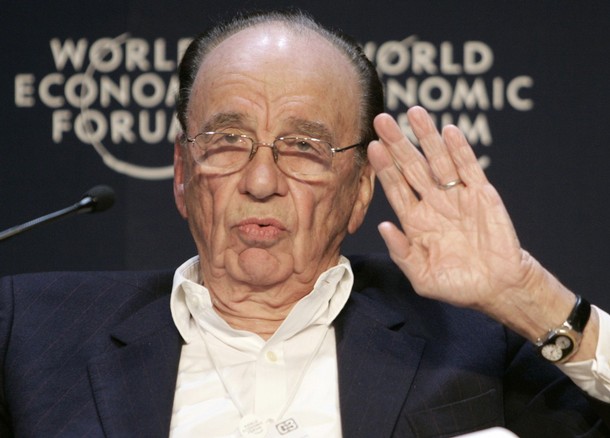There are two kinds of social media 'strategy'. And they service two kinds of orgs; the ones which see social media as a channel through which to sell stuff and the ones who realise that social media offers a bigger opportunity to become an Open Business - with all the benefits that apply.
There's a simpler way of putting that: There are the orgs that are prepared to change, and those who are not.
Social Media Strategy 1.
This requires the gathering of evidence from which to derive org/brand-specific insights. The evidence is gathered in a structured way, from all stakeholders, across operational axis - creating a living and live strategic framework for best-fit delivery of not just discovery and engagement of relevant customers and potential customers, but also of methods with which to deliver products and services with those for whom they are intended. It is the framework which keeps on giving - a platform for social media excellence to apply across the org now and into the long run.
This first kind of strategic approach is the one taken by organisations who, 'get strategy'. They appreciate that any project is far likelier to fail than succeed if the evidence and insight phases are absent. They have learned that much energy, time and cash is wasted in wild goose chases driven by ego or gut instinct.
They seek to remove risk by increasing knowledge.
Social Media 'Strategy' 2:
And then there's the other kind of 'strategy'.
These are the orgs that ask for 'a social media strategy' but mean - 'please, let's go straight to tactics'. They rely on the experience of an expert - the gut of their judgement. And as the small print always says - past performance is no guarantee of future results. The only possible outcome is a generic 'strategy' since no evidence has been gathered and no insight derived to make it an org-specific plan. And one thing I'm damn sure of in the world of the web - one size most certainly does not fit all.
Those who tend to select this approach are likely to see social media as just another channel through which to sell stuff to people. And they want to know how where and when.
This approach delivers short-term campaign-style results. It's cheaper. But, of necessity, more prone to failure.
It's quite quick and easy to get to that 'know the channel' stuff. What's harder is making the org ready to connect with its consumers in this open way. The two-way flow is typically not something they have been used to.
They have yet to establish what is required of them from their customers, what needs to change within the guidelines, governance, roles, job descriptions and so much more to make the most of the participation coming their way.
And when their rush-to-tactics delivers poor results who and what will they blame?
I'm counting the days until we collectively wise up enough not to describe that second kind as 'strategy' at all.
That's going to require some honesty from both sides.
Friday, July 29, 2011
Thursday, July 21, 2011
The march to open business is inevitable - so why aren't you acting?
 |
| A shipload of Inevitable being delivered right now... |
If a thing becomes inevitable – even at some distance in the future – it’s kind of dumb not to start planning for it – preparing to adapt to it.
It’s part of the risk assessment phase. There it becomes ‘how inevitable is this?
If you score its inevitability at even 50% then there is significant risk that this outcome is going to have a huge impact on the way you conduct your business, where and who with.
One macro example: Is it inevitable that Greece or a.n.other Eurozone country defaults? What percentage score are you going to give that? What level of risk does that then level at your org? What do you need to prepare to change as a result?
Ok.
Now ask yourself what score you are going to give the inevitability of the voice of your customers impacting your marketplace – just as it has taken down Governments in the Arab Spring and killed Britain’s biggest-selling newspaper? Is the social media genie going back in the bottle - or is it going to continue to spread its game-changing impact through more of the media, through all kinds of government, through education, the law - and every kind of business? How inevitable is this march towards the need to be open, to engage, to make productive partners of customers and clients?
How inevitable? 50%?
It’s more isn’t it?
What level of risk does that then level at your org? What do you need to prepare to change as a result?
And isn’t it time you started?
Related articles
- George Soros: Greek Default Might Be 'Inevitable' (huffingtonpost.com)
- Can paywalls be sociable? David Cushman on social media in news publishing (briefingmedia.wordpress.com)
Wednesday, July 13, 2011
Is this the Arab Spring for Media?
 |
| Thanks, then, bye... etc (image via Flickr 'world economic forum' |
I believe (as previously posted) it's a key moment in the shift in power relations - the end of the power of the media to tell us what to think.
There are similarities with the Church's loss of power. That came with the arrival of the mass produced book - a technology delivered by the printing press. It shifted the way information was both generated and distributed.
Now the media faces a similar loss of power - with the arrival of self-organised systems of publication and distribution - the social media.
It has allowed the edge - the all of us - to lead the way in showing the politicians the media no longer holds sway. Now they've been shown how weak the old media is, the politicians are windmilling in. And I don't think they are going to let up (and likely nor are we) until new rules of ownership are imposed. They will restrict the amount of the media anyone can own.
Which is kind of bolting the stable door after Dobbin has disappeared over the horizon - because who would want a vast chunk of something that delivers dwindling revenues and even faster dwindling power. I doubt Murdoch will have to be told.
The press has always been known as the fourth estate (at least in the UK). The other three are the Legislature (The politicians and their machinery), The Judiciary (the Judges and theirs) and The Church.
The Church's power (and along with it, wealth) disappeared with the arrival of the printing press. The Fourth Estate's is rapidly going the same way - driven by the self-organisinig edge-enabling impact arrival of the internet.
A vacuum will emerge - with all of us now charged to fill it. And that won't be easy. We have to work out collective ways of keeping the legislature in check and the judiciary under review. But we've got the tools, we've clearly got the ability - now we have to find the regular, committed inclination to fill the boots of the salaried investigations of the best of the Fourth Estate.
We'll crack it. And if we do it in a way that successfully contains checks and balances on ourselves and our influence, we may find this particular Arab Spring does away with one or two other estates along the way.
Related articles
- The Fourth Estate is Bankrupt By William Bowles (dandelionsalad.wordpress.com)
- Citizens, Arise! No One Is Watching, So We Have To Do It Ourselves (crooksandliars.com)
- News Corp. drops bid for BSkyB (money.cnn.com)
Friday, July 08, 2011
The end of The Age of Being Told What To Do
 |
| Image via Flickr - and free to share anywhere! |
British politician's must be privately sighing with relief (or more likely laughing themselves dizzy). Because this spells out if not the end of the power of press barons, a very significant reduction in it.
The News of the World is one of NewsCorps. Part of the vast Murdoch media empire. It is an empire which has given the Murdochs huge power. They have used it to threaten, cajole, instal and topple Governments. They backed one party or another - and went on witch hunts and mud-slinging exercises to attack those who they did not annoint. Through this they have seeked to control how we are governed.
Successive generations of Britain's leaders have cow-towed to this power. It's been embarrassing to see them cringe before Rupert and Co.
Now politicians are waking to the realisation that Murdoch's media power has gone - and that learning has to impact every press baron remaining on the planet.
The rapid and angry response of the people took down the News of the World - destroying the brand. And that response was only able to grow, aggregate and self-organise to impressive effect because of the social tools now at our disposal - the social media. We didn't need to be told how to think, or what to do.
A community of purpose organised and created change, fast. The web lowers the cost of group forming. But the important bit is that these aren't any old groups. These are groups of people with shared purposes: Communities.
And communities lower the cost of getting things done.
No longer is the power at the centre - it is at the edge.
We, the edge, the self-organised, have achieved what Governments could not - we have brought the press barons to heel.
Of course there will be emergent clusters and clumps of influence, flocks to be turned in the peer to peer world where influence now resides. We don't all have equal influence - power if you like - all of the time. But it is us, the edge that will do the flock turning.
Messages are no longer done to us, but done by us - or at the very least with our considered consent. We will share what we choose to share - and that is the only way in which information will flow in this space. We will no longer be told what to think by a huge source of power at the centre - we will influence each other.
But before the politicians raise a glass of champagne to the demise of the media baron, they must also note that their fate remains in the hands of exactly the same forces. They may believe they are the power at the centre but unless they take rapid steps to open up to the people they represent - and relinquish the control that dominates the current model - they will go the way of the News of the World and of the press barons.
Related articles
- The end of the News of the World (theglobeandmail.com)
- Murdoch Empire at Risk (thedailybeast.com)
- Why News Corp.'s Fukushima-Style Clean-Up of Its Phone-Hacking Scandal is Doomed (adage.com)
Friday, July 01, 2011
Making Waves
I went to see Take That tonight. Take the mickey all you like but those boys can sure put on a show.
As often happens a group of people tried to start a Mexican Wave. A packed Wembley Stadium is a mighty large group of people to try to coordinate.
And sure enough this group - of enthusiastic ladies - repeatedly failed. At least they did until they reversed the direction they were trying to get the wave to go.
When they went clockwise, off it went - round and round 6,8 times.
Regular Mexican Wave watchers (among them Mark Earls, who notes the phenomena in his book Herd) will tell you this should not surprise. An anti-clockwise wave is something of a rarity. Clockwise is the way we flock (and rock, on this occasion).
When Robbie Williams came on and demanded an anti-clockwise wave from his fans, his position as influential broadcaster from the stage secured an against-the-grain success. But only for one lap.
Interesting that when we are told what to do by a sufficiently impressive and influential 'centre' we do as we're told. For one lap.
When we self-organise, from the edge, from the fans, we join in and make it happen far longer.
- Posted using BlogPress from my iPhone so I may have to tidy it up later ;-)
As often happens a group of people tried to start a Mexican Wave. A packed Wembley Stadium is a mighty large group of people to try to coordinate.
And sure enough this group - of enthusiastic ladies - repeatedly failed. At least they did until they reversed the direction they were trying to get the wave to go.
When they went clockwise, off it went - round and round 6,8 times.
Regular Mexican Wave watchers (among them Mark Earls, who notes the phenomena in his book Herd) will tell you this should not surprise. An anti-clockwise wave is something of a rarity. Clockwise is the way we flock (and rock, on this occasion).
When Robbie Williams came on and demanded an anti-clockwise wave from his fans, his position as influential broadcaster from the stage secured an against-the-grain success. But only for one lap.
Interesting that when we are told what to do by a sufficiently impressive and influential 'centre' we do as we're told. For one lap.
When we self-organise, from the edge, from the fans, we join in and make it happen far longer.
- Posted using BlogPress from my iPhone so I may have to tidy it up later ;-)
Subscribe to:
Comments (Atom)
FasterFuture.blogspot.com
The rate of change is so rapid it's difficult for one person to keep up to speed. Let's pool our thoughts, share our reactions and, who knows, even reach some shared conclusions worth arriving at?





